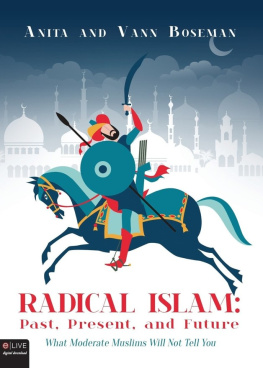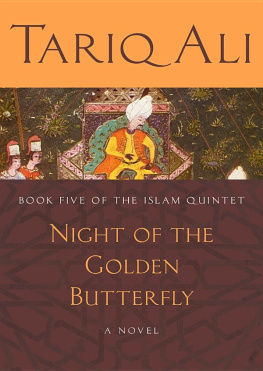Praise for A God Who Hates
Wafa Sultan paints a scorching, unforgettable portrait of Syrian Muslim society, especially the degradation of its women, and lyrically appreciates her adopted American homeland, which she calls the land of dreams. But she also worries that Middle East customs are encroaching on the West and writes with passion to awaken Americans to a menace they barely recognize, much less fear.
Daniel Pipes, director, Middle East Forum
Like thousands of others, I first encountered Wafa Sultan on a stunning YouTube video. Here was a woman on Al-Jazeera TV, eloquently and courageously defending Western civilization, individualism, and reason against the barbarity and mysticism of radical Islam. Her performance was mesmerizing. She was articulate, self-confident, and outspoken. She stunned the audience, the interviewer, and the pathetically outmatched Imam who opposed her. Now Wafa Sultan has written her life story in this powerful book. She exposes the ugliness that is Muslim society in the Middle East, while unapologetically defending the Western values she adopted when rejecting the religion of Islam. If you want to understand this courageous woman, who continues to fight for her beliefs in spite of death threats, and to understand her views on the conflict between Islam and the West, this is a must-read.
Yaron Brook, Ph.D., president and executive director,
Ayn Rand Institute
A GOD WHO HATES
A God Who Hates
WAFA SULTAN
The Courageous Woman
Who Inflamed the Muslim World
Speaks Out Against the Evils of Islam
ST. MARTINS PRESS  NEW YORK
NEW YORK
AUTHORS NOTE
This is a true story, though some names have been changed.
A GOD WHO HATES. Copyright 2009 by Wafa Sultan. All rights reserved. Printed in the United States of America. For information, address St. Martins Press, 175 Fifth Avenue, New York, N.Y. 10010.
www .stmartins .com
Book design by Jonathan Bennett
Library of Congress Cataloging-in-Publication Data
Sultan, Wafa.
A god who hates : the courageous woman who inflamed the Muslim world speaks out against the evils of Islam / Wafa Sultan.1st ed.
p. cm.
ISBN 978-0-312-53835-4
1. Women in Islam. 2. IslamRelations. 3. East and West. I. Title.
BP173.4.S848 2009
297.082dc22
2009016930
First Edition: October 2009
10 9 8 7 6 5 4 3 2 1
To my dear husband and children
whose selfless love has sheltered me
when no other place seemed safe.

Lastly, to the memory of my beloved
niece Mayyada, who cut her life short
by committing suicide to escape the
hellish marriage imposed upon her
under Islamic Sharia Law: May her
tragic account be an eternal inspiration
to all who are privileged to live in free
societies. May her story encourage all
those who have been subjugated to
tyrannyespecially womento become
well informed and to persevere beyond
fear and intimidation. And a challenge:
To those whose spirits uphold the
principles of justice and freedom of
speechMay Mayyadas story, and that
of many more whose stories have never
been told, embolden you to speak up
against the unjust and immoral treat
ment of women in the Muslim world.
CONTENTS
ACKNOWLEDGMENTS
There is a saying in Arabic: A single flower cannot create a blooming field. Likewise, without my many dedicated and supportive friends I would not have been able to bring this book to fruition. From the bottom of my heart, I would like to thank all and each one of them. I trust they know who they are; so, for me to mention their names is unnecessary. I do not wish to place their lives in danger in the same way my life is threatened.
Al Jazeera media network hosted me for three programs on their famous series, Al Itjah al Mouakes (The Opposite Direction). After the third interview, the station apologized to the Arab world for allowing me to insult Islam and as a consequence cancelled all rebroadcasts of the program. Nevertheless, my three interviews on Al Jazeera introduced me and my message to millions of people, and for that opportunity, I am wholeheartedly grateful to Al Jazeera.
Middle East Media Research Institute (MEMRI) played a major role in spreading my mission as well. For that I would like to extend my appreciation to them. MEMRI team labors diligently to break the language barriers in order to accurately represent information emanating from the region and in doing so, offer an unbiased journalistic forum so the rest of the world may better appreciate the true nature of the perilous situation in the Middle East.
Finally, I would like to thank my dear readers in the Arab world whose responses, positive and negative, have encouraged me to persevere and overcome the grave challenges that must be faced in confronting hatred and religious intolerance.
1.
A God Who Hates
MOST MUSLIMS, IF not all of them, will condemn me to death when they read this book. They may not even read it. The title alone may push them to condemn me. Thats how things are with them. They dont read, or, if they do, they dont take in what they read. They are much more interested in disagreement than in rapprochement and they arefirst and foremostsupremely interested in inducing fear in others with whom they disagree. They may even threaten to condemn you just for reading this book because, in their cruelty, they have learned something about how to control others: Nothing tortures the human spirit more effectively than making someone a prisoner of her own fears. I am, though, no longer afraid. Why? Let me tell you a fable that might explain how I confronted my fears of speaking out against the radical mullahs of Islam.
There once was a strong and inquisitive young man who loved to travel. In his thirst for knowledge, he moved from place to place and traveled from town to town, drinking in wisdom and recording everything that happened to him.
Eventually, he came to a beautiful village slumbering at the foot of a mountain surrounded on all sides by green hills where gentle winds blew intermittently, delighting the mind and refreshing the heart. In this beautiful place, he was shocked to see that the inhabitants of this village were sad. They moved sluggishly, dragging their feet. To him they appeared no more than moving phantoms, without body or soul. The sight of these phantoms terrified him. He became determined to discover what made them so and set off to see a fabled wise man who lived alone, in a hut, cut off from the village and its inhabitants.
When he met the wise man, he asked what secret lay behind this great paradox. He asked why these people lived in a state of subjugation and dejection in a village where everything would seem to suggest that the people would be blessed with happiness and well-being. The sage came out of his hut and pointed toward the top of the mountain. Look at that peak. An enormous ogre sits up there. From where he sits, he raves and shrieks, filling peoples hearts with fear by threatening to gobble them up if they leave their homes or do any kind of work at all. The people, terrorized by his shrieks, can live only by stealth. Only their survival instinct keeps them going. They steal out like mice in secret to gather enough to keep body and soul together. They live day by day, waiting impatiently for the moment of their death. Their fear of this ogre has sapped their intellect and depleted their physical powers, reducing them to despair and hopelessness.













 NEW YORK
NEW YORK